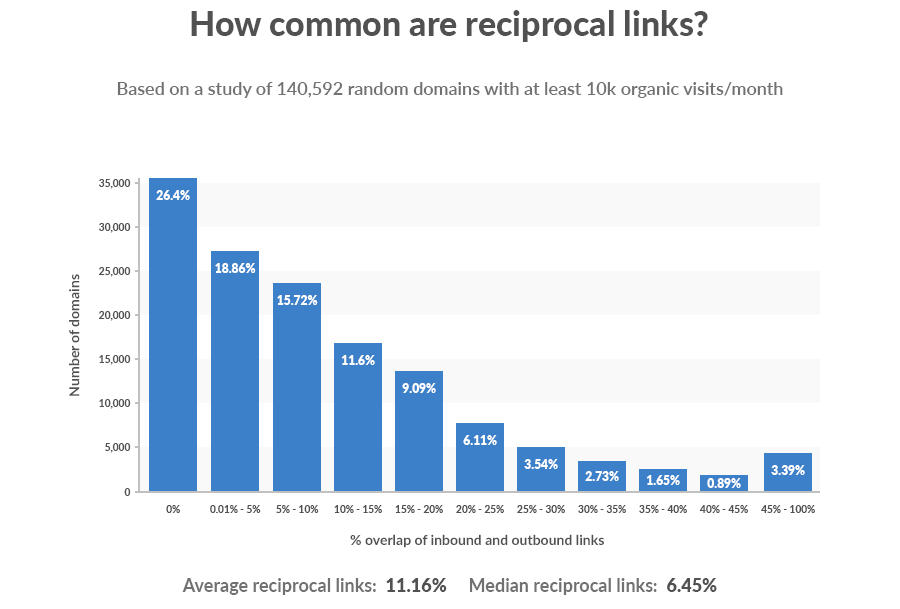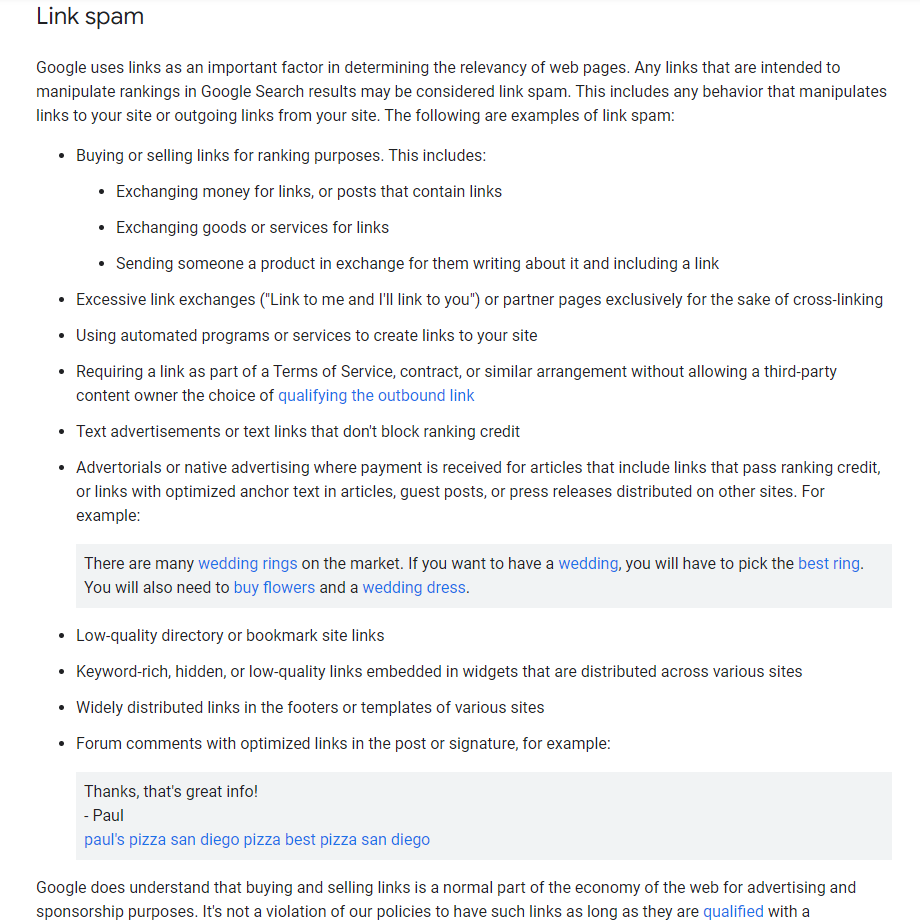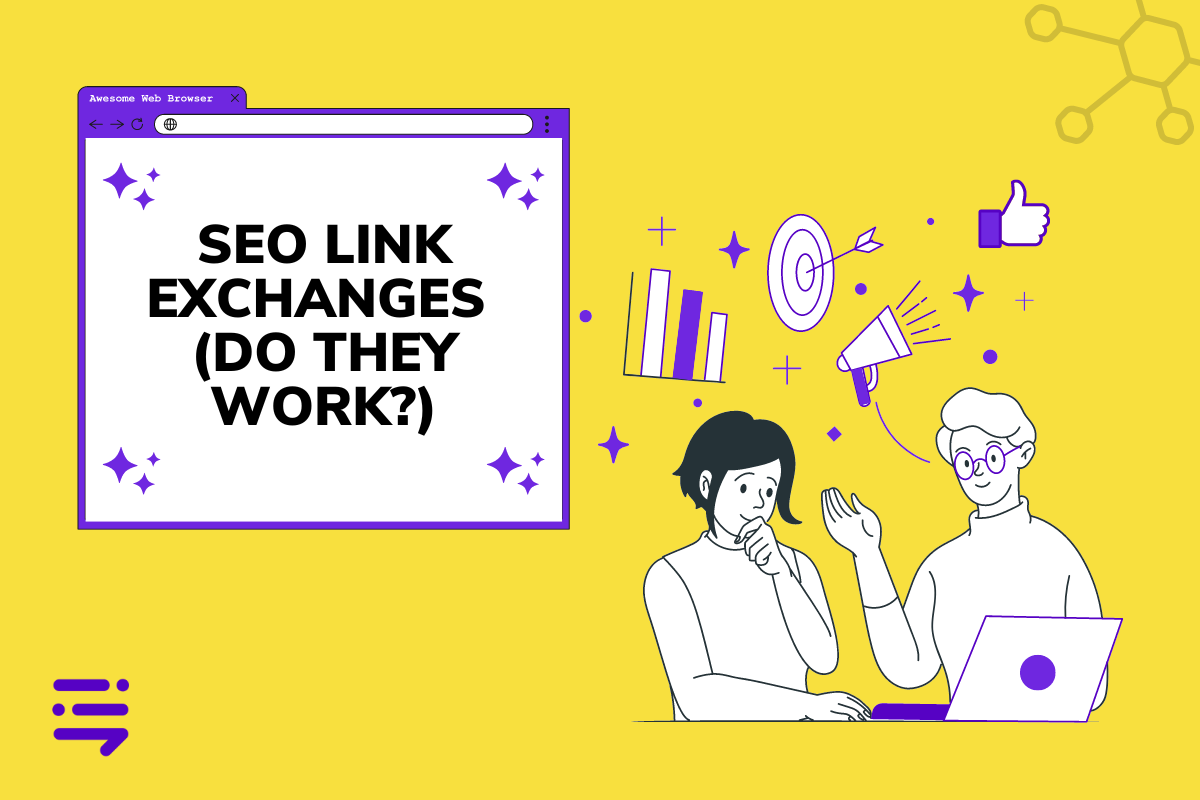If you’re looking to increase your website traffic, one method you may want to consider is a backlink exchange.
In a nutshell, this involves partnering with other websites in your industry or niche and exchanging links with them. This can be a great way to get more exposure for your site and attract new visitors.
Of course, as with anything related to SEO, there are some things you need to keep in mind if you want to make the most of link exchanges.
In this blog post, we’ll give you some tips on how to approach a backlink exchange so it benefits both parties involved and helps boost your website’s traffic.
What is a Link Exchange?
An SEO link exchange is a form of link-building strategy where two websites agree to exchange links. This is usually done through guest blogging and content creation to boost SEO and increase site authority.
The process works on a quid pro quo basis – “You scratch my back, I’ll scratch yours.”
In other words, “You’re linking to me and I’m linking back to you.”
It’s worth noting that this practice isn’t new; it was quite popular in the early 2000s as an effective method for increasing search traffic and improving your backlink profile.
However, reciprocal link building should be handled carefully as Google’s Webmaster Guidelines label excessive link exchanges as a “link scheme” – something they discourage.
The Evolution of Reciprocal Linking
In today’s digital landscape, the way reciprocal links appear on sites has changed significantly compared to how link-building services were doing it 20 years ago. Today’s focus is more on creating authentic relationships with other websites through genuine outreach efforts rather than just swapping links for mutual benefits.
A natural SEO link can occur when you reference another website or piece of content without any expectation of reciprocation. If they discover your link and choose to reciprocate by linking back organically, that’s exactly how a modern-day reciprocal link is born.
According to an Ahrefs study of 1,000,000+ websites, 73.6% of them have reciprocal backlinks.
We understand that exchanging both incoming and outgoing links is a popular link-building technique, but we don’t know if it’s a good practice.
So what’s wrong with it?
Source: Ahrefs
How Reciprocal Links Benefit Your SEO Strategy
Links are an essential part of a successful SEO campaign. Even link exchanges can be advantageous when used correctly.
The goal is to enhance the customer experience while on the website.
Here are the main benefits of using backlinks for your search engine optimization.
Enhance Customer Experience
Reciprocal links, or links to your partners, can improve the user experience on your site.
By exchanging links, you can share valuable resources with your audience that may be hosted on the other website. This can provide additional value to your visitors.
Linking to other sites will help increase your engagement, which will get noticed by search engines.
Establish Authority
Reciprocal linking can help you gain the trust of others and increase your credibility.
Giving your customers and prospective customers access to more relevant content shows them that you understand them and their problems and that you’re confident in what you offer them.
Search engines like Google can recognize this, so moving up in search results becomes easier.
NOTE: Interlinking between posts on your own site is a great way to improve topical authority, especially if you target several similar ideas and informational keywords around a particular subject.
Increase Web Traffic
Links to your site can introduce your brand to new customers, who may not have otherwise heard of you.
Increasing traffic to your website is another way to tell Google and other search engine algorithms that your business is gaining popularity. This increases your ranking on search results pages.
Build Relationships
Link exchanges can foster relationships between websites in the same or related industries. Building connections with other site owners can lead to future collaborations, guest posting opportunities, and a stronger online network.
Is a Link Exchange a Sound Strategy?
Most search engine optimization (SEO) experts will advise against exchanging links, especially those that aren’t well-versed in the ways of building backlinks. This can be seen as manipulative by search engine algorithms and may result in a penalty.
But, as I’ve seen firsthand, the landscape of search is constantly changing and those involved at the highest levels of SEO will look for ways to take advantage where they can.
This technique can work wonders for landing some high-quality, authoritative links.
Private Influencer Networks
A few years back, popular blogger and SEO expert, Glen Allsopp, wrote a very popular article about building links privately.
It talks about how some large companies like Cosmopolitan and Marie Claire are using private influencer networks for link building.
Glenn’s graphic illustrates how some of the internet’s biggest tech publications have risen together by exchanging backlinks with one another regularly. This shows how helpful these types of networks can be for boosting rankings.
Glenn showed how major publications helped each other by exchanging links to boost their rankings.
What if there was a group of websites that all linked indirectly to each other? The ultimate goal would be for all the sites in the group to grow together.
This is a pretty advanced method of swapping links and I found Glenn’s insight to be pretty groundbreaking. It’s something to think about if you’re looking for ways to grow your website.
From my own experiences in link-building and talking with content creators in just about every industry, I can say that big companies are implementing some very similar tactics, but in lower-key ways.
What is Google’s Take?
The guidelines that Google has laid out for webmasters are clear: Excessive linking is against their rules. But it’s interesting to see that they use language like “excessive” and “rules”.
Even Google is aware that it’s normal for sites to naturally link together. If a friend of mine were in the marketing industry, I’d definitely be linking to them.
If I were organizing a trade show, I would make sure my sponsors and vendors had links back to my website. This is common practice and helps both my vendors and myself.
Link exchanges are common when businesses mutually benefit from each other.

Google’s guidelines on link exchange
When to Avoid a Link Exchange
SEO link exchanges can be great for your search engine optimization, but they can also bring negative effects.
Link exchanges were all the rage in 2010, but today, we’ll be doing them differently.
Here are some situations when you should avoid SEO link exchanges:
- Website is far from your target niche or content: If someone with a marketing site wants to exchange with your gardening product site, it’s probably best to pass. Google and other search engines consider relevancy when evaluating the quality and authority of a link. Linking to irrelevant or low-quality websites with poorly written content can negatively impact your site’s reputation. Take a look at the type of content to see if it’s at least close to the story you’re telling (and take a look at quality while you’re reviewing the content).
- Private Blog Networks (PBNs): PBNs are networks of interlinked websites created solely for SEO purposes. Engaging in link exchanges with PBNs can lead to severe penalties, as these networks are considered a violation of search engine guidelines.
- Websites primarily focused on sourcing content (not creating it themselves): If more than 50% of the content on the site wanting to link to you is from someone else (guest and sponsored posts), then you may want to steer clear.
- Link farms and spammy sites: Link farms are networks of websites created solely for building links, without any valuable content or purpose. Similarly, avoid exchanging links with spammy websites or those with a history of violating search engine guidelines. Associating with such sites can lead to penalties from search engines. One way to tell if you’ve got a link farm is by checking how many links they’ve received and given over the past few months. To do this, use a tool like Ahrefs, Semrush, or others.
- Excessive link exchanges: If your website has an excessive number of reciprocal links or if the majority of your backlinks come from link exchanges, it may raise a red flag for search engines. Natural link profiles usually consist of a diverse range of link sources, including editorial links, social shares, and mentions.
- Selling or buying links: Participating in paid link exchanges or link buying schemes is against the guidelines of search engines like Google. Engaging in such practices can lead to severe penalties, including the loss of organic search traffic.
- Over-optimized anchor texts: Anchor text is the clickable text that contains the hyperlink. If you participate in a link exchange and use overly optimized anchor text (e.g., exact-match keywords), it can raise suspicion with search engines, as it may indicate an attempt to manipulate search rankings.
In general, it’s best to focus on white-hat link-building strategies and attract organic backlinks through content creation, outreach, and providing value to your target audience. Natural and editorially given links from reputable websites are more valuable for SEO and help to establish your site’s authority and credibility.
Need help with creating top-notch content that attracts backlinks? BrandWell is the answer! This powerful brand growth engine is designed to generate in-depth, well-written blog posts (and other types of content) around your target keywords in just a few clicks.
How to Swap Backlinks Safely
If you want to engage in reciprocal linking with other websites, it’s crucial to do it safely and ethically to avoid potential negative impacts on your SEO. While the effectiveness of reciprocal links for SEO has decreased over time, you can still follow these guidelines to ensure safe backlink swapping:
Pick Relevant Partners: Select authoritative websites with similar content for exchanging links. This enhances relevance and improves user experience while boosting SEO.
Focus on Quality: Prioritize quality over quantity. Avoid participating in link exchange schemes that involve many unrelated websites. Instead, look for high-quality, authoritative sites with a good reputation.
Vet the Websites: Before agreeing to a link exchange, thoroughly vet the website you’re considering linking to. Check the website’s content, domain authority, organic traffic, and backlink profile. Ensure it adheres to ethical SEO practices.
Keep it Natural: Don’t overdo reciprocal linking. Keep the number of exchanged SEO links to a minimum compared to the overall backlink profile of your site. It should be just one part of your broader link-building strategy.
Diversify Your Backlinks: Focus on building a diverse set of backlinks. Include other types of links, such as editorial links, guest posts, social media mentions, and citations. This will create a more natural and authentic backlink profile.
Leverage Local Websites: If you’re a local business, consider building reciprocal relationships with other local websites as they may offer more targeted referral traffic.
Use Varied Anchor Text: When swapping links, use varied and natural anchor text. Avoid using exact-match keywords repeatedly, as it can raise red flags with search engines.
Keep Track of Links: Keep track of the websites you’ve exchanged links with and periodically check if the links are still live and relevant. If a linked site engages in questionable practices or becomes irrelevant, consider removing the link.
Build Relationships: Instead of focusing solely on SEO link exchanges, build genuine relationships with other website owners. This can lead to more organic link opportunities, guest posting invitations, and co-marketing efforts.
Monitor Your Backlink Profile: Regularly monitor your backlink profile using tools like Google Search Console or third-party SEO tools. This way, you can identify any potential issues or negative SEO attacks involving your backlinks.
While reciprocal linking has lost some of its SEO power, it can still be a part of your link-building strategy if done safely and judiciously. Focus on quality, relevance, and diversity when exchanging backlinks with other websites.
Linking to helpful resources can help your customers and potential clients, and this, in turn, can have a positive effect on your engagement, which will have a positive effect on your search engine rankings.
Conclusion
If you’re looking to increase your website traffic, one method you may want to consider is a backlink exchange. In a nutshell, this involves partnering with other websites in your industry or niche and exchanging links with them. This can be a great way to get more exposure for your site and attract new visitors.
Of course, as with anything related to SEO, there are some things you need to keep in mind if you want to make the most of link exchange. In this blog post, we’ve given you some tips on how to approach SEO link exchange so that it benefits both parties involved and helps boost your website’s traffic!
Need more high-quality content to attract links? Sign up for BrandWell to start churning out SEO-focused content that gets the attention of authority sites in your niche.




